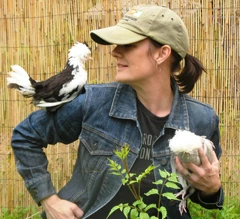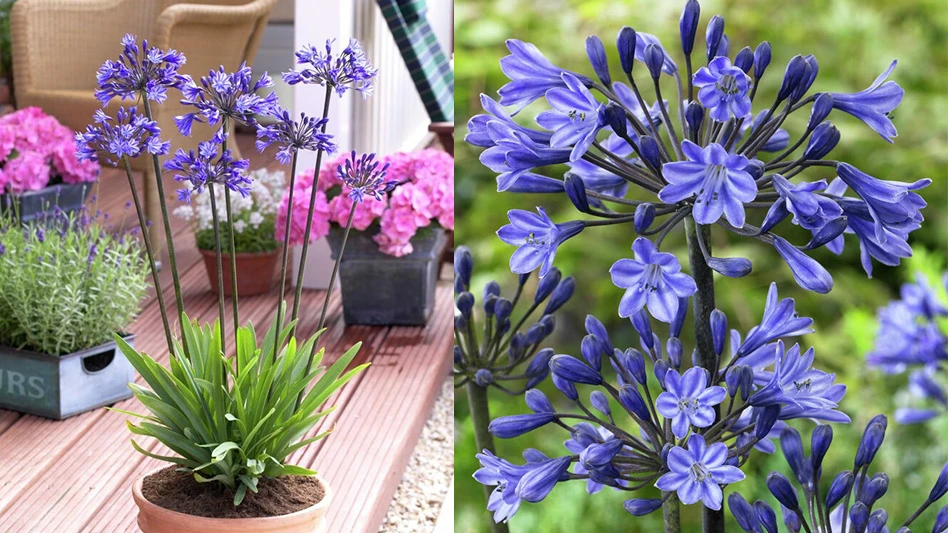
 Leslie Halleck Leslie Halleck, general manager of North Haven Gardens in Dallas, began her horticulture career during college, working at a garden center called the Green Fiddler in Denton, Texas. In 1998 she joined the Dallas Arboretum, first as curator of plants and then director of horticulture research, a joint position with Texas A&M University. Her work at the Dallas Arboretum included creating a highly successful plant trials program as well as an All-America Selections Trial Garden, serving as an AAS Judge. In February of 2005, Halleck joined the crew at North Haven Gardens (NHG).
Leslie Halleck Leslie Halleck, general manager of North Haven Gardens in Dallas, began her horticulture career during college, working at a garden center called the Green Fiddler in Denton, Texas. In 1998 she joined the Dallas Arboretum, first as curator of plants and then director of horticulture research, a joint position with Texas A&M University. Her work at the Dallas Arboretum included creating a highly successful plant trials program as well as an All-America Selections Trial Garden, serving as an AAS Judge. In February of 2005, Halleck joined the crew at North Haven Gardens (NHG).
Halleck made headlines recently when she went head-to-head with city zoning officials about offering hens for sale at NHG. Urban chicken-keeping, in Halleck’s opinion, is a logical extension of the more sustainable lifestyles people are attracted to these days.
“One only has to look at the exponential increase in vegetable gardening sales to see that people want to grow more of their own food,” she said. “Self-sufficiency also includes things like rain water retention, composting and keeping backyard chickens for fresh eggs, even if you live in the city.
“Motivation for these activities varies from customer to customer. For some it’s about economics, and for others it's more about personal and global health. For many of our customers it’s both, as it is for me personally. They want to know where their food is coming from, how it was grown and certainty that it’s fresh.”
GARDEN CENTER MAGAZINE: How does your extensive background with trial gardens influence what you offer in the store? Do you look at new plant introductions with a more critical eye?
LESLIE HALLECK: I’m definitely more critical about the pros and cons of new varieties on the market because I’m so familiar with the traditional process of their breeding, testing and introduction. Most varieties are not selected for performance based on our tough [Texas] climate, so you can't simply take the word of a person, or glossy plant catalog, trying to sell you on the variety.
It’s really easy to get sucked into the hype about new plants, especially those with a brand name attached to them. I attend many trade shows each year and am always looking at the new plant introductions with a close eye to see if there is potential for success in our area.
I also understand the realities when it comes to breeder versus grower versus retailer. Marketing and promotions on new plant varieties is often way ahead of actual availability in the market. We try to educate our customers that it can take two to three years for a brand new variety to make it into our garden center. Sometimes it’s quicker, but only if local growers can gain quick access to starter material and have success producing the crop.
Oftentimes, it takes some time for supply to catch up to demand. Also, growers may find the variety does not do well for them in production, which limits access to the plant by retailers. As a retailer, our goal is to sell customers the plants they will have the most success with, even if that means leaving out a brand new variety that’s all the rage.
GC: Do you expect the popularity of vegetable gardening to continue into next spring? What are you planning to do, promotion-wise, to maintain momentum with this trend?
LH: Honestly, I expect the popularity of vegetable gardening to continue indefinitely. I don’t really look at vegetable gardening as a trend, but rather a crucial component of a local sustainable food system. Popularity may rise and fall from time to time, but people are always going to have to grow food to eat.
The biggest reason customers give up on vegetable gardening is that they don’t see immediate success. We live in an “instant gratification” culture, but no one becomes a great vegetable gardener overnight. It takes education and practice. Here at NHG, we feel customer education is the key to sustaining a successful vegetable gardening niche.
Before this new wave of vegetable gardening popularity began, NHG was already known as a destination for edibles, especially herbs, which is our number one category. We plan to continue marketing to this strength and keep a focus on edibles in our advertisements, Web site and other publications, as well as our education calendar.
GC: Has a customer ever asked you a gardening-related question that left you stumped?
 LH: I’ve probably been stumped on a few plant ID questions over the years. Texas has a huge number of native plants; it can be hard to keep them all cataloged in my brain. Of course, I am usually left without a good answer when someone asks for “a plant that is evergreen, flowers all year long, produces fruit, can grow in full shade and never has to be watered.” We all get that one from time to time!
LH: I’ve probably been stumped on a few plant ID questions over the years. Texas has a huge number of native plants; it can be hard to keep them all cataloged in my brain. Of course, I am usually left without a good answer when someone asks for “a plant that is evergreen, flowers all year long, produces fruit, can grow in full shade and never has to be watered.” We all get that one from time to time!
GC: Is there a plant that you feel is generally misunderstood by your customers?
LH: I often have to remind myself that to the typical homeowner, plants in general are a mystery. Specifically though, vegetable gardening is probably the most intimidating category for most of our customers. When planting shrubs and trees, the goal is usually simply to get some greenery into the landscape and provide shade. But with vegetable gardening, there is a much higher expectation for results on their part. When customers don’t see that immediate result, they get frustrated. Growing vegetables is a bigger commitment of time and learning.
In addition to plant categories, I’d also add that organic products and backyard chicken keeping are two niches that are also misunderstood by many. Again, education is the key, and you have to be committed to teaching your customers the benefits and value of these products and practices.

Explore the September 2009 Issue
Check out more from this issue and find your next story to read.
Latest from Garden Center
- Meet the All-America Selections AAS winners for 2025
- AmericanHort accepting applications for HortScholars program at Cultivate'25
- 2025 Farwest Show booth applications now open
- The Garden Center Group hosting 'The Financial Basics of Garden Retailing Workshop Series'
- Weekend Reading 11/22/24
- Hurricane Helene: Florida agricultural production losses top $40M, UF economists estimate
- Terra Nova Nurseries shares companion plants for popular 2025 Colors of the Year
- Applications open for Horticultural Research Institute Leadership Academy Class of 2026





